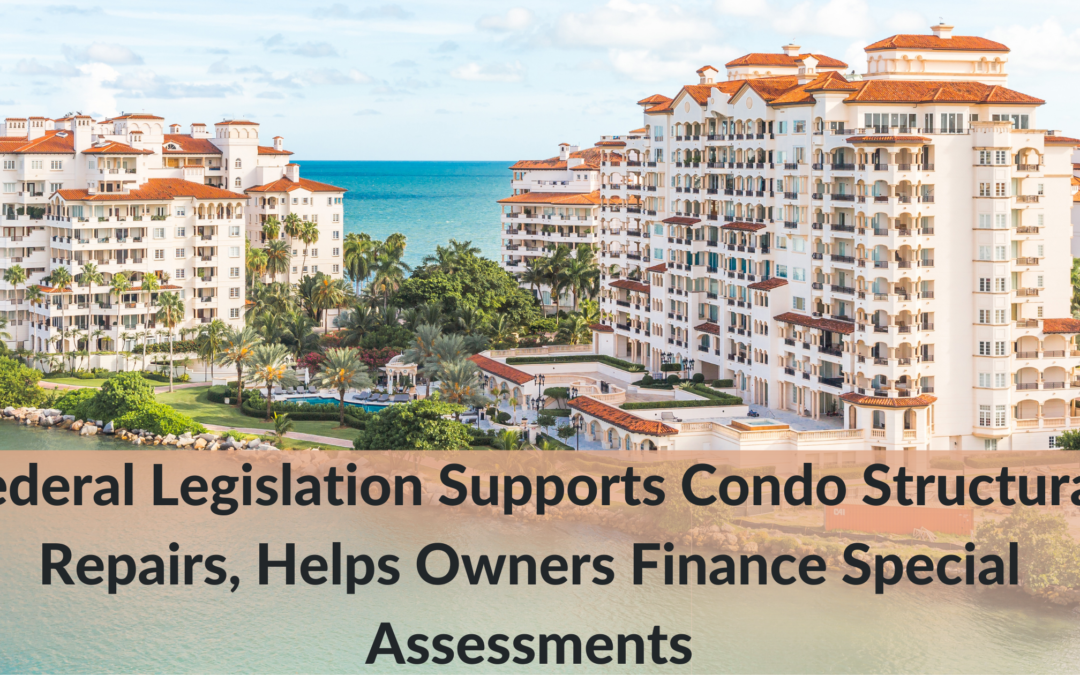Yesterday, April 18, 2022, U.S. Reps. Charlie Crist (D-St. Petersburg) and Debbie Wasserman Schultz (D-Broward, Miami-Dade) introduced the Securing Access to Finance Exterior Repairs (SAFER) in Condos Act of 2022. The legislation, a response to the partial collapse of Champlain Towers South in Surfside, Fla., on June 24 in which 98 people died, allows condominium homeowners to finance critical building repairs with loans backed by the Federal Housing Administration (FHA).
CAI has been working with Crist’s and Wasserman Schultz’s offices since last summer to introduce meaningful and practical legislation that will provide access to government-backed low interest loans to support critical repairs in condominiums. CAI is very pleased to have the legislators’ full support for condominium safety.
The SAFER in Condos Act will allow condominium homeowners to combine a special assessment to fund condominium building structural repairs with existing mortgage debt and secure a new 30-year mortgage loan insured under the FHA home rehabilitation program. The legislation also grants condominium homeowners access to the FHA Property Improvement Program to finance a structural repair related special assessment over a term of 20 years.
The SAFER in Condos Act is intended to reduce upfront costs to condominium homeowners facing special assessments to finance necessary building repairs. Following the partial collapse of Champlain Towers South, condominium associations and municipal governments across the nation began to examine the structural integrity of condominium buildings. In some cases, reviews uncovered significant deferred maintenance that required immediate repairs. As condominium associations continue to evaluate the structural integrity and maintenance needs of aging buildings, homeowners may be required to fund repairs through a special assessment. The SAFER in Condos Act will help condominium homeowners afford the repairs through 30- and 20-year loan programs.
The introduction of the SAFER in Condos Act is the first step in the legislative process. To become law, the legislation must proceed through the House Financial Services Committee, be approved by the full U.S. House of Representatives, pass the U.S. Senate, and be signed into law by President Biden.
As the one-year anniversary of the Champlain Towers South tragedy approaches, in honor of the 98 victims, we are working to get 98 members of Congress to co-sponsor the legislation. You can help by contacting your U.S. representative through CAI’s Advocacy Center and asking them to co-sponsor the bill and work for the legislation’s passage.



